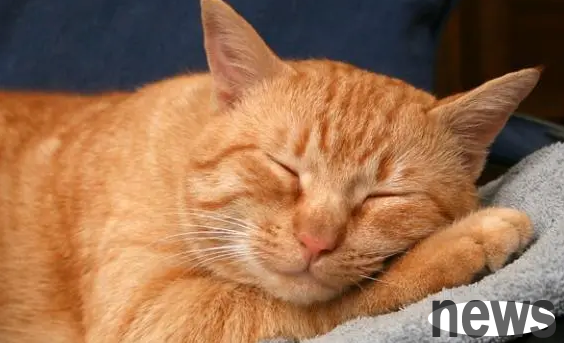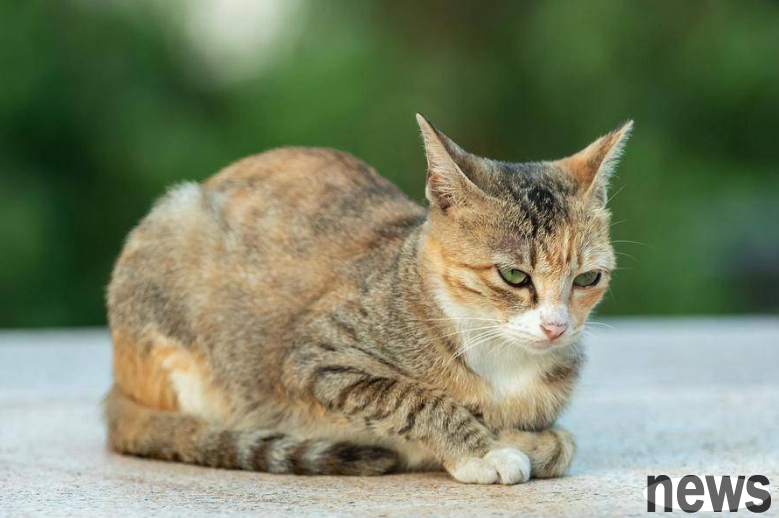With the development of the times, scientific pet raising has become the mainstream requirement, and pet medicine is becoming more and more developed, and cats’ lifespan is getting longer and longer. Today, let’s talk about cat lifespan and how to t...
With the development of the times, scientific pet raising has become the mainstream requirement, and pet medicine is becoming more and more developed, and cats’ lifespan is getting longer and longer. Today, let’s talk about cat lifespan and how to take care of older cats.
Cats have a lifespan without disease and normal physical indicators. It is normal to live to be in their 20s, which is equivalent to the end of human life.
So how many stages can cats be divided into? What changes will happen when you get old? How do we take care of the elderly cats? What should I pay attention to when taking care of elderly cats?

The six major stages of life in cats are divided by age. Cats can be divided into six major stages:
The first stage: 0 to 6 months
The kitten will open their eyes and ears about two to three weeks after birth, and since then, its body and intelligence begin to develop. Kittens have vision, sound and smell like human babies. Every new animal, human and object it comes into contact with helps to form its personality.
In the next few weeks, kittens' social abilities will be greatly affected by these interactions and contacts
After leaving their mother at about two to three months of age, kittens will begin to become more independent and curious. It explores its surroundings. In these months, kittens have grown very fast, and by the time they are 6 months old, they are almost the same age as 10-year-olds.
A series of vaccinations are required at this stage, and kittens are usually spayed or sterilized when they are 6 months old.
Stage 2: 6-month-three-year-old kittens adulthood - From six months to three years old Since a six-month-old kitten can already be compared with double-digit human children, when a cat is one year old, it will reach its adult size and usually establish its preferences, habits, etc.
A one-year-old cat is physiologically similar to a 15-year-old person, while a two-year-old cat is like a 24-year-old person. Kittens are usually healthy, but this age group is a good time to do some basic blood tests to understand the normal values of cats. Occasional beauty, dental cleaning and annual veterinary examinations are necessary to keep an adult cat healthy.
Stage 3: Three to six years old
A three to six year old cat is still an adult cat, but not an elderly cat. Cats of this age are usually accessible in terms of health, but some do have problems or congenital problems that need to be solved, such as chronic diseases.
Cats of this age may need nutritional supplements to keep their bones and joints in the right way, need regular checkups and vaccinations each year, and may experience occasional health problems, but overall, this age is usually healthy.
A five-year-old cat is comparable to a 36-year-old human, so it is the golden age of adulthood.
Stage 4: From 7 to 10
Once your cat reaches seven or eight years old, it begins to enter old age, but we know that since cats usually live to their teenage years, they are not really old cats. If cats are humans, cats aged nine to ten are not yet at retirement age.
But this is an important age group to ensure that your older cat is properly nutritious, as obesity is common in middle age.
Also check your cat for dental diseases, kidney problems, or heart murmurs. Blood tests should be compared with those done at a young age to ensure that there is no trend to change in organ function. It is recommended that you perform more frequent tests with your veterinarian.

Stage 5: From 11 to 14
When your cat reaches 11 years old, it is finally a real elderly cat. Joint problems are a common hidden problem, and older cats may begin to decline in their organ function.
Regular physical examinations to ensure that common problems in elderly cats are detected early. Cats of this age may also need to change their dietary habits, as older cats usually need different nutrition as their bodies change.
Some older cats seem to become irritable as they age, usually because an older cat may feel pain or joint discomfort, or even changes and confusion in the brain. Be sure to discuss any observed changes with your veterinarian as this may be a sign that your cat is sick.
Stage 6: From 15 to 20 years old and above
This can be considered a long-lived period. A 15-year-old cat is equivalent to a person in his 70s in age. By the age of 20, if it is a human, they are almost 100 years old.
Any cat 15 or older is considered an elderly cat and should visit the veterinary at least every six months. These cats may take medications or special foods and supplements to support a variety of body systems.
Elderly cats will experience severe hearing and vision decline and spend most of the day sleeping.
Cognitive decline is not uncommon in cats of this age, just like people in their 90s may experience it.
Although cats live to their 20s more often than dogs, such an old cat is still an achievement, and special attention should be paid to these elderly cats.
The changes in the physical changes of the old cat
① Vision:
The vision of the old cat will gradually deteriorate, but because the cat is highly myopic and has better sense of smell and touch than vision, even if the cat is old, the cat will not notice that the cat's vision will become worse without paying special attention.
But be sure to check the cat's eyes regularly, as older cats are more likely to suffer from eye diseases (such as cataracts) or to blindness due to high blood pressure.
②Sense of Olfaction:
Cats' sense of smell is 200,000 times that of humans, because there are about 99 million nerve endings in the cat's nasal mucosa, but the sense of smell of elderly cats will deteriorate, and even slowly lose due to age. As the sense of smell deteriorates, cats' appetite for food will also decrease..
③Audibility:
Cats can hear high notes above 50,000-60,000 Hz and find the source of the sound, and can hear clearly even from 20 meters away. However, elderly cats cannot avoid deteriorating their sensitivity to external sounds, and will experience deafness. Cats are very agile animals, but elderly cats will become less and less motivated, and will suffer from bone and joint diseases. They will also become disliked and do not like to jump high due to the decrease in muscle mass of the body.
⑤ Oral
The probability of elderly cats suffering from oral diseases is much higher than that of young cats. This is because they are older, their immunity decreases, and bacteria in the oral cavity breed, causing oral diseases, such as: inflammation of the gums, oral ulcers, and tooth loss.
Inflammation and pain in the oral cavity will further lead to a poor appetite in the cat, causing a vicious cycle.
⑥ Weight:
The weight of elderly cats will decrease because the metabolism of elderly hair slows down, absorption and digestion becomes worse, and the appetite decreases, it is easy to gradually lose weight.
⑦ Changes in hair:
The hair of an elderly cat will gradually lose its luster and become sparse, the fuzz will fall off, leaving sparse hard hair, and since the cat becomes unwilling to take care of itself, the hair will be bunched.
How to take care of elderly cats?
1. Change the food of cats:
① Give high-quality and high-protein elderly cat food: The cats get older and the body loses more protein, so the demand for protein in elderly cats is actually far higher than that of young cats.
Note: If it is an elderly cat with kidney disease, you should carefully select the protein content. Please consult a veterinarian for details.
② Daily energy demand will decrease, which means that the protein in cat food should be high, but the amount of food needs should be controlled
③ If the elderly cat is sick, please follow the doctor's instructions to feed.
2. Take care of the cat and give care
① The cat is old, but still looks like a child in his heart. Even if he is old, he likes the caress and care of his owner.
②Frequently help cats to clean their hair, comb their hair, cut their nails regularly, clean their eyes, ears, mouth and nose regularly, etc.
③ Even if they are elderly cats, they still like to play games. Play games with cats more
3. Improve the living environment
①Old cats do not like to jump, we can reduce the height between objects, such as changing the top-in litter box to side-in, and reducing the distance between cats' crawler frames, etc., to make them easier
4. Regular weight measurement
① Normal adult cats generally do not change drastically in a short period of time, generally only fluctuates by dozens of grams, but if the weight suddenly decreases by 10% in two weeks or a month, you should pay attention to the cat's appetite, spirit and other behaviors. It is recommended to take it to the hospital for examination.
What changes should you observe in daily life?
①Appetite: Do you want to eat it? Can you eat it?
②Do you drink water and urinate amount: Do you drink water? Will you suddenly drink a lot? Is urination normal? Too much or too little?
③ Weight changes: Is
④ Behavior changes: Do you love to move? Is there any exception?
⑤ Body touch check: Is there any abnormal hair loss on the body? Is there any tumor?